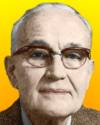
On 19 Nov 1983, R.W. van Bemmelen died, a Dutch geologist whose book, Geology of Indonesia (1949) and his studies of the regional geology of Indonesia drew attention to the significance of island areas in the development of the Earth's crust. He was educated as a mining engineer but later on preferred being a geologist, with a bias towards volcanology. He was also known for his dedication to geoscience, his tenacity and resilience, as well as being an inspiring teacher. A short biography of Reinout Willem van Bemmelen also includes his Undation Theory, which he maintained was a better explanation than global tectonic plates.

On 19 Nov 1895, the first U.S. patent for a paper pencil was issued. A pencil-making machine was also patented. Like most other human artifacts, the common pencil, made and sold today by the millions, has a long and complex history. Today's book pick is: The Pencil: A History of Design and Circumstance, by Henry Petroski who traces the long and complex history of the pencil back to ancient times. Petroski combines a talent for fine writing with a deep knowledge of engineering and technological history, examines the story of the pencil, considering it not only as a thing in itself, but also as an exemplar of all things that are designed and manufactured. Thus, he shows what the pencil can teach us about engineering and technology today.
Petroski ranges widely in time, discussing the writing technologies of antiquity. But his story really begins in the early modern period, when, in 1565, a Swiss naturalist first described the properties of the mineral that became known as graphite. Petroski traces the evolution of the pencil through the Industrial Revolution, when machine manufacture replaced earlier handwork. Along the way, he looks at some of pencil making's great innovators—including Henry David Thoreau, the famed writer, who worked in his father's pencil factory, inventing techniques for grinding graphite and experimenting with blends of lead, clay, and other ingredients to yield pencils of varying hardness and darkness. Petroski closes with a look at how pencils are made today—a still-imperfect technology that may yet evolve with new advances in materials and design.
Henry Petroski is one of the webmaster's favorite authors because he weaves delightful stories around otherwise this seemingly unremarkable object.
It is available from Amazon, typically about New from $7.82. Used from $1.99. (As of earlier time of writing - subject to change.)
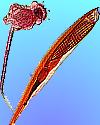 | Darwin's theory was received in Russia with profound sympathy. While in Western Europe it met firmly established old traditions which it had first to overcome, in Russia its appearance coincided with the awakening of our society after the Crimean War and here it immediately received the status of full citizenship and ever since has enjoyed widespread popularity. |
 | Geology differs from physics, chemistry, and biology in that the possibilities for experiment are limited. |
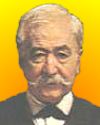 | Since 1849 I have studied incessantly, under all its aspects, a question which was already in my mind [since 1832. I confess that my scheme is still a mere dream, and I do not shut my eyes to the fact that so long as I alone believe it to be possible, it is virtually impossible. ... The scheme in question is the cutting of a canal through the Isthmus of Suez. This has been thought of from the earliest historical times, and for that very reason is looked upon as impracticable. Geographical dictionaries inform us indeed that the project would have been executed long ago but for insurmountable obstacles. [On his inspiration for the Suez Canal.] |
| Before you look at today's web page, see if you can answer some of these questions about the events that happened on this day. Some of the names are very familiar. Others will likely stump you. Tickle your curiosity with these questions, then check your answers on today's web page. | |
| Births | |
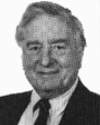 | Stanley Keith Runcorn, born 19 Nov 1922, was British geophysicist who was the first to discover evidence of an interesting phenomenon of the Earth's magnetic field. What was this phenomenon? |
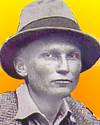 | Hiram Bingham was an American archaeologist who was the first western scientist to study Machu Picchu, one of the world's greatest archaeological sites. Machu Picchu is in which country, and was home to people of which civilization? |
 | Ferdinand, vicomte de Lesseps was born 19 Nov 1805. He is famous for building a major construction project. What was this construction project? |
| Deaths | |
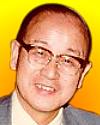 | Tetsuya ("Ted") Fujita (1920-1998) was a Japanese-born meteorologist who discovered microbursts and their role in some airplane crashes. With his wife, he developed the Fujita scale of measurement. What does the Fujita scale measure? |
| Events | |
 | On 19 Nov of a certain year, the first export shipment of petroleum from the U.S. to Europe left Philadelphia, Pa. for London, England. A cargo of 1,329 barrels was carried by the Elizabeth Watts, a 224-ton brig. In what decade was did petroleum export from the U.S. begin? |
Fast answers for the previous newsletter for November 18: Alan Shepard • 20 to 30 minutes • entropy approaches zero as the temperature goes towards absolute zero. • Danish • decade containing the year 1963 • American Railway Association.
 If you enjoy this newsletter, the website, or wish to offer encouragement or ideas, please send feedback by using your mail reader Reply button.
If you enjoy this newsletter, the website, or wish to offer encouragement or ideas, please send feedback by using your mail reader Reply button. Your click on a Facebook, StumbleUpon, or other social button on the site webpages is also a welcome sign of appreciation. Thank you for using them.
© This newsletter is copyright 2020 by todayinsci.com. Please respect the Webmaster's wishes and do not put copies online of the Newsletter — or any Today in Science History webpage. (If you already have done so, please remove them. Thank you.) Offline use in education is encouraged such as a printout on a bulletin board, or projected for classroom viewing. Online, descriptive links to our pages are welcomed, as these will provide a reader with the most recent revisions, additions and/or corrections of a webpage. For any other copyright questions, please contact the Webmaster by using your mail reader Reply button.
--
If you do not want to receive any more newsletters, Unsubscribe
To update your preferences and to unsubscribe visit this link
Executive Real Estate Business Class
-
"It was like a man with wings. It wasn't like anything you'd see on TV or in a monster movie." ...
About the publisher
Search This Blog
Blog Archive
-
▼
2020
(1542)
-
▼
November
(164)
- Last day to save! Take advantage of Black Friday d...
- On This Day for November 30 - Independence of Barb...
- Newsletter for Monday 30 November.
- November 30: Cnut the Great, the 1st State to Abol...
- FAMILY: Happiness in a stressful season
- Medieval monarchs | WW1 quiz | Marlborough pie recipe
- On This Day for November 29 - United Nations resol...
- Newsletter for Sunday 29 November.
- November 29: Edison's Phonograph, Schrödinger's Ca...
- The Compass: Italy
- See the past through a different lens with Nat Geo...
- On This Day for November 28 - Opening of Tehrān Co...
- Newsletter for Saturday 28 November.
- November 28: Exploration, Invention and a Day of F...
- PHOTOGRAPHY: How adversity inspired discovery for ...
- The gift of curiosity lasts a lifetime. Give Nat G...
- Very Weird — And Very Real — Facts About The Victo...
- Black Friday Deals: Save 50% on a Britannica Membe...
- Black Friday Savings at the HISTORY Store
- On This Day for November 27 - Nobel Prizes establi...
- Newsletter for Friday 27 November.
- November 27: The Model Parliament, the 1st Native ...
- ANIMALS: The pets I’m thankful for
- A Very Special Thanksgiving Edition Of Our Newsletter
- On This Day for November 26 - Premiere of Casablan...
- Newsletter for Thursday 26 November.
- YOUR WEEKLY ESCAPE: They live in a legendary under...
- November 26: 1st National Thanksgiving, Alice in W...
- SCIENCE: The prehistoric truth about turkeys
- UPDATED: Every Membership Now 50% Off!
- Every Membership Now 50% Off!
- Demystified: Is the Ozone Layer Finally Healing It...
- On This Day for November 25 - Japanese military ba...
- Newsletter for Wednesday 25 November.
- November 25: Dynamite and The Mousetrap
- TRAVEL: Keeping your family safe over the holidays
- Meet The Real-Life "Dexter" — Serial Killer Of Mur...
- On This Day for November 24 - Dutch discovery of T...
- Newsletter for Tuesday 24 November.
- November 24: 1st Transit of Venus Observed, Van Di...
- HISTORY: The faces of COVID-19’s toll
- New This Week on History News Network
- On This Day for November 23 - Ley Juárez passed, I...
- Newsletter for Monday 23 November.
- November 23: On This Day in History
- FAMILY: Keeping the holidays familiar for your kids
- The many faces of Anne Boleyn | Take our Tudors qu...
- On This Day for November 22 - U.S. President John ...
- Newsletter for Sunday 22 November.
- November 22: Vasco da Gama Rounds the Cape and JFK...
- The Compass: Hawaii
- On This Day for November 21 - Signing of Mayflower...
- Newsletter for Saturday 21 November.
- November 21: The Mayflower Compact, a Jewish state...
- CORONAVIRUS UPDATE: 200,000 new cases in a single day
- PHOTOGRAPHY: Switching tactics to chronicle the wo...
- How The Kennedy Curse Has Tormented America's Firs...
- On This Day for November 20 - Mexican Revolution l...
- The Roundup Top Ten for November 20, 2020
- Newsletter for Friday 20 November.
- November 20: Uyghurs Conquer China, the Napoleonic...
- ANIMALS: The deadly thing about snakes
- Give your kids a love of learning with Nat Geo Kid...
- #1 Gift for Families this Holiday - On Sale Now!
- On This Day for November 19 - Anwar Sadat's visit ...
- Newsletter for Thursday 19 November.
- November 19: "Four Score and Seven Years Ago..."
- YOUR WEEKLY ESCAPE: Not all of the dinosaurs died
- SCIENCE: Can we make North America’s greatest reso...
- The Latest News from History News Network
- On This Day for November 18 - Jonestown massacre, ...
- Newsletter for Wednesday 18 November.
- November 18: St. Peter's Basilica is Consecrated a...
- TRAVEL: Best of the World 2021
- Black Friday Early Access! 50% off Holiday Bundles...
- Photographer Captures the Impacts of Climate Chang...
- On This Day for November 17 - Arnold Schwarzenegge...
- Newsletter for Tuesday 17 November.
- November 17: On This Day in History
- HISTORY: Thanksgiving in tough times
- New This Week on History News Network
- On This Day for November 16 - Election of Bhutto a...
- Newsletter for Monday 16 November.
- November 16: Francisco Pizarro Ambushes Atahualpa,...
- FAMILY: Keeping kids kind during this stressful time
- The Crown S4 | Henry VIII's seventh wife | Vikings...
- On This Day for November 15 - Palestinian statehoo...
- Newsletter for Sunday 15 November.
- November 15: The Scramble for Africa and the Vietn...
- The Compass: Peru
- On This Day for November 14 - Eritrea made a provi...
- Newsletter for Saturday 14 November.
- CORONAVIRUS UPDATE: The U.S. enters uncharted terr...
- November 14: Kirch's Comet, Einstein's Theory of L...
- PHOTOGRAPHY: In the land of Arctic dreams
- The Unhinged Soldier Who Avenged Lincoln's Assassi...
- The Roundup Top Ten for November 13, 2020
- On This Day for November 13 - Terrorist attacks in...
- Newsletter for Friday 13 November.
- ANIMALS: Images to surprise and delight during thi...
-
▼
November
(164)
-
Blogroll
-
About
HistoryFact










0 comments:
Post a Comment